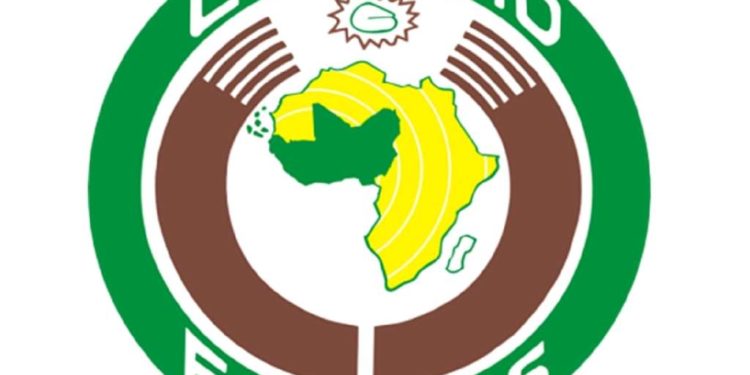ECOWAS member nations have suggested reopening all land borders on January 1, 2022.
ECOWAS sectoral ministers made the decision yesterday in a virtual meeting organized from Abuja, Nigeria, in partnership with the West African Health Organization (WAHO).
Among the considerations influencing their decision was the fact that their economies lost $50 billion in value, or 6.7% of their combined Gross Domestic Product (GDP), between 2020 and 2021.
The meeting’s findings and recommendations will be presented to the ECOWAS Council of Ministers meeting, which is set for tomorrow and Friday in Abuja, Nigeria, and will then be forwarded to the Heads of State and Government, the highest decision-making body, for approval.
According to an ECOWAS communiqué published after the meeting, more than 50 persons attended, including ECOWAS sectoral ministers in charge of the Interior, Health, Finance, Trade, and Transport, as well as their specialists.
Participants included ECOWAS Commission directors in charge of Free Movement, Mr. Albert Siaw Boateng; Trade, Mr. Kolawole Sofola; Private Sector, Mr. Tony Luka, and Department of Infrastructure specialists.
Delegates from the Permanent Representation of ECOWAS Member States and the ECOWAS National Offices in the Member States, as well as partners, participated in the discussions.
Other Recommendations
The ministers also urged member states to put ECOWAS’s harmonized instructions against the COVID-19 into action.
They also encouraged member states to guarantee that PCR tests are mutually recognized at borders and that their validity periods be harmonized.
The ECOWAS sectoral ministers meeting on the forthcoming reopening of land borders was one of the decisions made at the 59th ECOWAS Summit of the Authority of Heads of State and Government in Accra a few months ago.
Impact
Aside from the GDP effect, the statistics show that the COVID-19 epidemic caused disruptions in demand and supply, as well as investments in critical economic sectors.
“Indeed, the tertiary (services) and primary (agriculture) sectors experienced a considerable decline on account of restrictions on travel and movement due to the closure of borders, disrupting supply chains and market access for small and medium-scale businesses,” the communique said.
In addition to border closures due to the COVID-19 pandemic, member nations were facing a security crisis and had increased security checks within and at their respective borders.
“The resulting consequence on the economy was a cumulated decline by 6.7 percent of GDP of ECOWAS countries between 2020 and 2021 (or approximately $50 billion),” it said.
Fundamental Issue
Speaking at the inaugural session last Monday, the ECOWAS Commissioner for Trade, Customs, and Free Movement, Mr. Tei Konzi, praised the large turnout of ministers and experts from the regional organization’s member nations.
“It attests to your concern for the mobility of our fellow citizens and their goods, as well as the economic recovery of our region,” the communique quoted him as saying.
The COVID-19 outbreak in West Africa in 2020 had a negative influence on commerce volume and human movement.
The abrupt closing of borders in order to combat the pandemic halted the implementation of community integration texts on the free movement of people and products, according to Commissioner Konzi, who added that reopening borders for economic recovery had now become a critical problem.
Challenges, lessons
During the discussions, which were co-chaired by Mrs. Clarisse Mérindol Ouoba, the Burkinabe Deputy Minister of Foreign Affairs responsible for African Integration and Burkinabes Abroad, the sectoral ministers shared the challenges and lessons learned from the two years of border closures to manage the COVID-19 pandemic in West Africa.
The discussion was designed to lay out the planned reopening of the borders.
The ministers next examined the appropriate regional priorities, technological possibilities, and associated actions for restoring borders while keeping human lives’ safety in mind.
Following that, they established a draft standard protocol for the continuation of border operations in the case of an incident, as well as procedures for collaboration and synergy at all levels.
Read Also: GOIL to lose GH¢9M monthly over fuel price reduction, it’s not sustainable – COPEC
SOURCE: GRAPHIC ONLINE



























